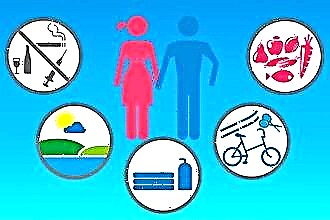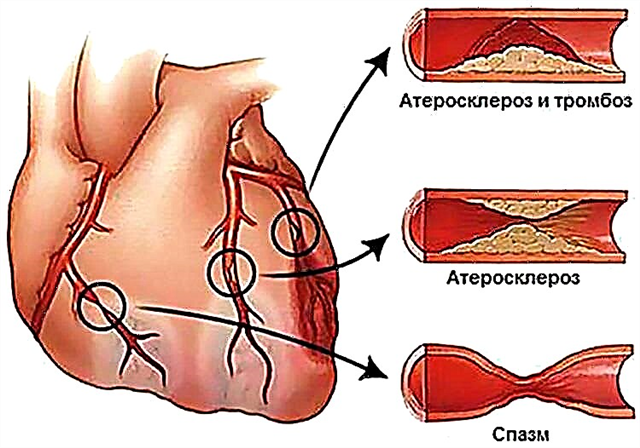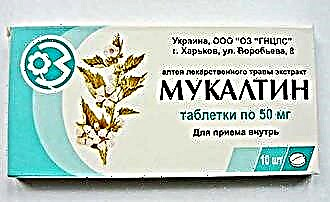Tracheitis is a disease of the trachea in which the lining of the trachea becomes inflamed. In most cases, various viruses provoke the development of this ailment. However, later harmful bacteria can join them. It should be noted that antibiotics are not used to treat acute tracheitis. Indeed, against the virus, such drugs will be completely powerless.
Antibiotics for tracheitis can be prescribed only when there is a very real threat of a serious complication of a bacterial infection (for example, sinusitis, otitis media, pneumonia or exacerbation of a chronic form of tonsillitis). Let us consider in more detail in which cases doctors resort to prescribing antibacterial drugs, and what drugs they use.
When are antibacterial drugs prescribed?
 With bacterial tracheitis, the infection can spread to the lower respiratory tract. This is expressed by the separation of sputum with an admixture of pus, chills and high fever. If these symptoms are observed, the doctor will prescribe appropriate antibiotics. Of course, after carrying out the necessary examinations of the patient. These drugs help to avoid the development of more serious complications - for example, pneumonia.
With bacterial tracheitis, the infection can spread to the lower respiratory tract. This is expressed by the separation of sputum with an admixture of pus, chills and high fever. If these symptoms are observed, the doctor will prescribe appropriate antibiotics. Of course, after carrying out the necessary examinations of the patient. These drugs help to avoid the development of more serious complications - for example, pneumonia.
To prevent life-threatening complications of tracheitis, antibacterial drugs are used for:
- suspicion of the onset of the development of pneumonia;
- prolonged course of a cold (symptoms persist for more than a month);
- a pronounced fever that manifests itself in the first few days (this sign may indicate the severity of the disease and an increased risk of developing unsafe complications);
- preservation of moderately elevated temperature indicators (within 37.4 ° C-37.9 ° C) 6-8 days after the onset of the disease;
- maintaining a high temperature (exceeding 38-38.5 ° C) for more than 4 days;
- the appearance of sinusitis with purulent discharge;
- the appearance of signs of otitis media in acute form with purulent discharge;
- exacerbation of angina or sinusitis, occurring in a chronic form and accompanied by purulent discharge.
Trained doctors today are extremely careful in prescribing antibiotics. They speak out categorically against the thoughtless and premature intake of these drugs. They argue their position by the fact that the use of antibacterial drugs in the normal course of tracheitis is harmful.
These drugs disrupt the natural composition of the microflora that occupies the respiratory tract, both lower and upper. As a result, the respiratory organs begin to populate with an unusual bacterial microflora.
In addition, antibiotic treatment for simple tracheitis helps harmful bacteria adapt to them. Thus, in the event of any subsequent complex diseases of the respiratory system, most drugs may be completely helpless.
Treatment with penicillins and cephalosporins
 Many experts believe that the most effective antibiotics for tracheitis are drugs belonging to the penicillin category. But not all, but only those that are administered intravenously. At the same time, in this category of funds there is a fairly large number of preparations for oral administration - tableted, encapsulated, in suspension powders. They have a wider range of effects. The most popular penicillin prescribed for tracheitis is Augmentin.
Many experts believe that the most effective antibiotics for tracheitis are drugs belonging to the penicillin category. But not all, but only those that are administered intravenously. At the same time, in this category of funds there is a fairly large number of preparations for oral administration - tableted, encapsulated, in suspension powders. They have a wider range of effects. The most popular penicillin prescribed for tracheitis is Augmentin.
"Augmentin" (synonymous names of drugs with the same active ingredients - "Amoklavin", "Amoxiclav", "Amoxicillin" and "Clavocin") consists of 2 active substances. These are amoxicillin and clavulanic acid. This drug is produced in several forms at once - in tablets, powder for injection and suspension powder.
"Augmentin" is prescribed for adults and children over 12 years of age. Dosage - 1 tablet twice a day. The pill should not be taken before eating, but at the very beginning of the meal. If the tracheitis is difficult, it is permissible to increase the dose to 3 tablets per day. Those suffering from chronic renal failure, infectious mononucleosis and gastrointestinal diseases are advised to be as careful as possible with the use of this drug. "Augmentin" is contraindicated for pregnant women and women feeding a baby with breast milk.
If a patient has an individual intolerance to penicillin, he is usually prescribed antibiotics belonging to the group of cephalosporins.
Bacterial or viral-bacterial tracheitis is successfully treated with Cephalexin (synonymous names of drugs with the same active ingredient - Keflex, Ospeksin). This drug has a wide range of effects - it is detrimental to many pathogens. It is produced in several forms - in tablets, capsules and suspension powder.
The adult dosage for this drug is 1 to 4 g per day. "Cephalexin" must be taken strictly every 6 hours - 30 minutes before meals. Take the tablet or capsule with a glass of water. The duration of the therapeutic course should not exceed 14 days. The occurrence of such side effects as general weakness, dyspepsia, headache, urticaria, as well as cholestatic jaundice and leukopenia is not excluded. The antibiotic is contraindicated in case of individual intolerance to drugs of this category and in children under 12 years of age.
The use of macrolides
 Macrolides are considered the least toxic antibacterial drugs. They are fatal to pneumococci and gram-positive cocci. In addition, antibiotics from this category successfully deal with bacteria that cause whooping cough and diphtheria, legionella and spirochetes, as well as chlamydia and mycoplasma. Macrolides have the property of accumulating in the tissues of the respiratory system, including the tracheal mucosa. Thanks to this, their effect is enhanced even more.
Macrolides are considered the least toxic antibacterial drugs. They are fatal to pneumococci and gram-positive cocci. In addition, antibiotics from this category successfully deal with bacteria that cause whooping cough and diphtheria, legionella and spirochetes, as well as chlamydia and mycoplasma. Macrolides have the property of accumulating in the tissues of the respiratory system, including the tracheal mucosa. Thanks to this, their effect is enhanced even more.
- "Azithromycin" is produced in tableted, encapsulated form and in suspension powder. Adults should take it 0.5 g per day (in this case, the full course of treatment will be 3 days), or drink 0.5 g on the first day and take 0.25 g of the medication daily for another 4 days. The entire dose allotted for one day must be taken immediately - about an hour before meals.
- "Josamycin" (synonymous name of the drug with the same active substance - "Wilprafen") is prescribed for the treatment of inflammations of an infectious origin, affecting the lower and upper respiratory tract, as well as the oral cavity. With bacterial tracheitis, the adult dose of "Josamycin" is 1-2 g per day. This volume must be divided into 3 doses. This antibiotic is approved for pregnant women and women who are breastfeeding a baby if the benefits outweigh the risks. This medicine is contraindicated in children under 14 years of age.
Any noticeable side effects with antibiotic therapy from the macrolide category are rare. In some cases, nausea, bouts of vomiting and abdominal pain may appear. They are contraindicated in case of severe liver dysfunction and individual intolerance to drugs from this group.
Inhaled antibiotics for tracheitis
The method of treating tracheitis with inhaled antibiotics is one of the most effective. The procedure makes it possible to provide a high concentration of the drug directly at the site of infection.In addition, inhalation with antibacterial drugs significantly reduces the risk of side effects.
 Today, bacterial tracheitis is treated with special forms of antibiotics. They are produced in solutions and special powders for inhalation.
Today, bacterial tracheitis is treated with special forms of antibiotics. They are produced in solutions and special powders for inhalation.
"Fluimucil" is a drug with a wide range of effects. Doctors prescribe it not only for tracheitis of bacterial origin, but also for the treatment of tonsillitis, pharyngitis, bronchitis, pneumonia and pulmonary diseases, accompanied by suppuration. To prepare an inhalation solution, it is necessary to add saline solution (only 5 ml) to the bottle with "Fluimucil". For one inhalation session, read half of the prepared solution - 2 ml. For adults, inhalation of this antibiotic should be done twice a day. If the child has not reached the age of 6, once is enough. The maximum duration of the course of treatment is 10 days.
Taking "Fluimucil", you need to take into account that it cannot be combined with other antibacterial drugs.
Aerosol "Bioparox" is a local antibacterial drug. It has no systemic effect. Adults with tracheitis of a bacterial nature need to do one inhalation (a session consists of 4 injections) every 4 hours. Children need this inhalation at 6-hour intervals. The duration of a therapeutic course is usually 5 to 7 days.
Admission rules
The effectiveness of treatment depends not only on the correct antibiotic. The drug still needs to be taken correctly. Errors in admission and disregard of prescriptions can significantly reduce the expected effect and delay recovery. Here are the basic rules for the use of antibacterial agents for the competent treatment of tracheitis.
 The duration of the course of taking an antibiotic must be agreed with the attending physician. With an unauthorized interruption of treatment, the risk of exacerbation of tracheitis increases significantly. This happens because the pathogenic microorganisms that have settled in the respiratory organs have not been completely destroyed.
The duration of the course of taking an antibiotic must be agreed with the attending physician. With an unauthorized interruption of treatment, the risk of exacerbation of tracheitis increases significantly. This happens because the pathogenic microorganisms that have settled in the respiratory organs have not been completely destroyed.- If the patient is recovering quickly, his condition has improved significantly, the temperature has returned to normal, and the wheezing over the trachea and bronchi has disappeared, the doctor may cancel antibiotic therapy. In order to prevent the development of complications, it is enough to take antibiotics for 3 to 7 days.
- It so happens that the antibacterial agent prescribed by the doctor does not work. This is detected, as a rule, already in the first 2-3 days of admission. If no improvement appears, you need to consult the doctor again - he will pick up another medicine. In some cases, if outpatient treatment fails, the patient is referred to a hospital.
Post factum
Bacterial tracheitis is significantly less frequent than viral. However, it is the bacterial form of the disease that is the most dangerous, since it can provoke the development of serious complications. To prevent this, you need to strictly adhere to the doctor's prescriptions and take antibacterial drugs according to the scheme recommended by the doctor.
Remember: any dose or course duration adjustment may adversely affect treatment.
Tracheitis with an antibiotic and any other drug is treated mainly on an outpatient basis, that is, at home. The need for inpatient therapy appears in extremely rare cases. At the same time, the possibility of home treatment does not give an exemption from the doctor's control over his process and results. After all, only a doctor will be able to make an objective decision - to cancel the drug or, conversely, to extend the therapeutic course.

 The duration of the course of taking an antibiotic must be agreed with the attending physician. With an unauthorized interruption of treatment, the risk of exacerbation of tracheitis increases significantly. This happens because the pathogenic microorganisms that have settled in the respiratory organs have not been completely destroyed.
The duration of the course of taking an antibiotic must be agreed with the attending physician. With an unauthorized interruption of treatment, the risk of exacerbation of tracheitis increases significantly. This happens because the pathogenic microorganisms that have settled in the respiratory organs have not been completely destroyed.

